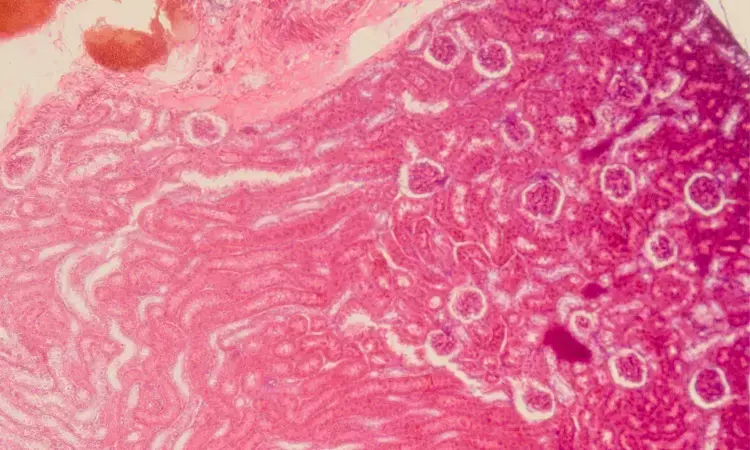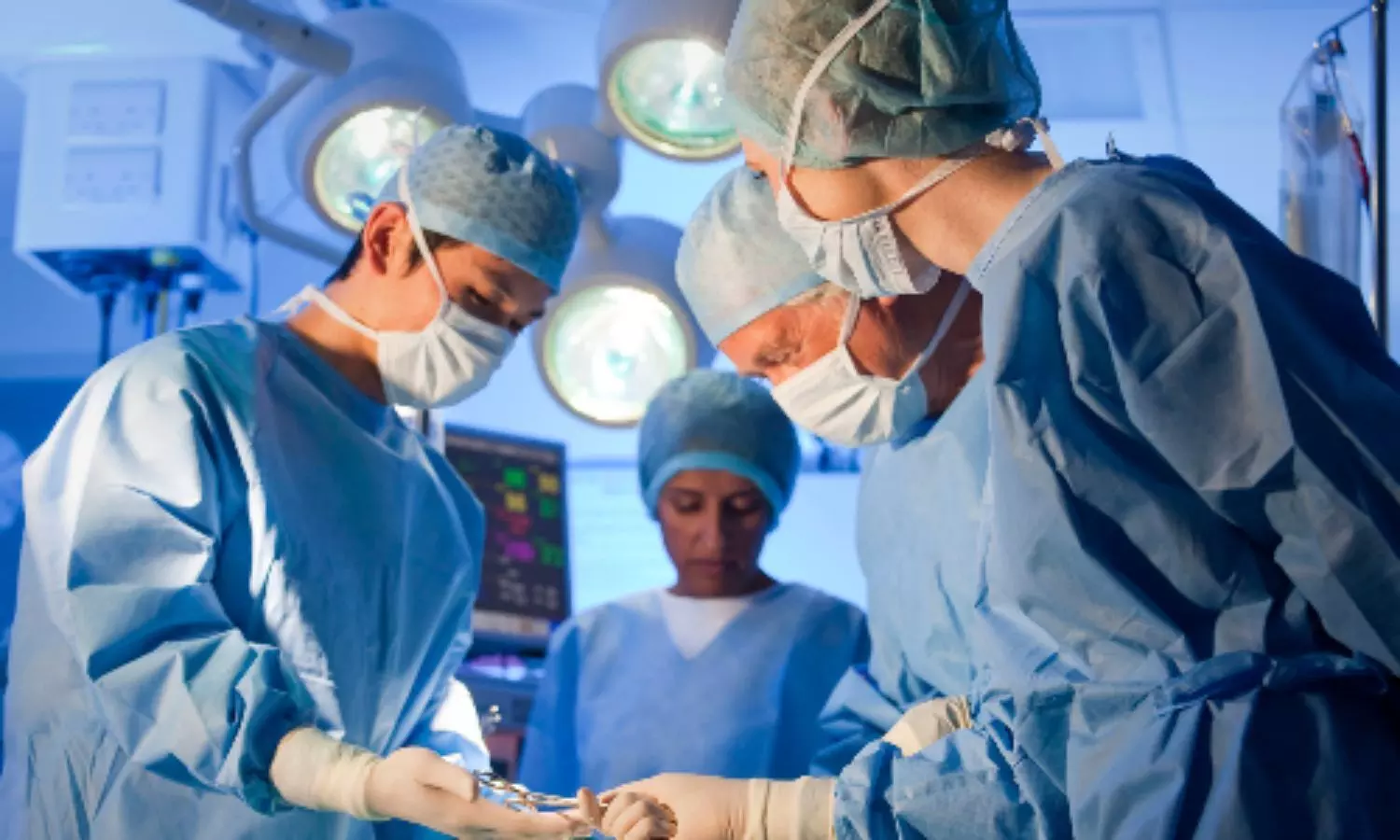- Home
- Medical news & Guidelines
- Anesthesiology
- Cardiology and CTVS
- Critical Care
- Dentistry
- Dermatology
- Diabetes and Endocrinology
- ENT
- Gastroenterology
- Medicine
- Nephrology
- Neurology
- Obstretics-Gynaecology
- Oncology
- Ophthalmology
- Orthopaedics
- Pediatrics-Neonatology
- Psychiatry
- Pulmonology
- Radiology
- Surgery
- Urology
- Laboratory Medicine
- Diet
- Nursing
- Paramedical
- Physiotherapy
- Health news
- Fact Check
- Bone Health Fact Check
- Brain Health Fact Check
- Cancer Related Fact Check
- Child Care Fact Check
- Dental and oral health fact check
- Diabetes and metabolic health fact check
- Diet and Nutrition Fact Check
- Eye and ENT Care Fact Check
- Fitness fact check
- Gut health fact check
- Heart health fact check
- Kidney health fact check
- Medical education fact check
- Men's health fact check
- Respiratory fact check
- Skin and hair care fact check
- Vaccine and Immunization fact check
- Women's health fact check
- AYUSH
- State News
- Andaman and Nicobar Islands
- Andhra Pradesh
- Arunachal Pradesh
- Assam
- Bihar
- Chandigarh
- Chattisgarh
- Dadra and Nagar Haveli
- Daman and Diu
- Delhi
- Goa
- Gujarat
- Haryana
- Himachal Pradesh
- Jammu & Kashmir
- Jharkhand
- Karnataka
- Kerala
- Ladakh
- Lakshadweep
- Madhya Pradesh
- Maharashtra
- Manipur
- Meghalaya
- Mizoram
- Nagaland
- Odisha
- Puducherry
- Punjab
- Rajasthan
- Sikkim
- Tamil Nadu
- Telangana
- Tripura
- Uttar Pradesh
- Uttrakhand
- West Bengal
- Medical Education
- Industry
Vitamin B12 accelerates cellular reprogramming and tissue regeneration among ulcerative colitis patients

Researchers have uncovered a vital link between vitamin B12 and the efficiency of cellular reprogramming, shedding light on a potential breakthrough in tissue regeneration and rejuvenation strategies. The study, focusing on the expression of key reprogramming factors (OCT4, SOX2, KLF4, and MYC), reveals a global depletion of vitamin B12 during the process, suggesting its crucial role in enhancing therapeutic outcomes.
The study results were published in the journal Nature Metabolism.
The investigation, conducted in mice, demonstrated that the reprogramming induced by the expression of OCT4, SOX2, KLF4, and MYC (OSKM) led to a significant depletion of vitamin B12. This finding prompted further exploration into the metabolic requirements of this transient reprogramming strategy, offering insights into potential avenues for improving tissue regeneration and rejuvenation therapies.
Remarkably, the researchers found that supplementing with vitamin B12 increased the efficiency of reprogramming, both in mouse models and cultured cells. This observation suggests a cell-intrinsic effect, highlighting the role of vitamin B12 in enhancing the effectiveness of cellular reprogramming techniques.
The study delved into the molecular mechanisms underlying the link between vitamin B12 and cellular reprogramming. It was discovered that vitamin B12 levels influenced the epigenetic mark H3K36me3, a critical factor in preventing aberrant initiation of transcription. This connection between vitamin B12 levels, H3K36 methylation, transcriptional fidelity, and efficient reprogramming provides valuable insights into the intricate processes at play during cellular reprogramming.
Clinical Implications:
Beyond its implications for cellular reprogramming, the study demonstrated that vitamin B12 supplementation accelerated tissue repair in a model of ulcerative colitis. This suggests that the role of vitamin B12 extends beyond cellular reprogramming to influence broader aspects of tissue regeneration and repair, making it a potential target for therapeutic interventions in various clinical scenarios.
The study's findings highlight the significance of vitamin B12 in the realm of tissue regeneration and cellular reprogramming. By uncovering the metabolic requirements and molecular dynamics associated with vitamin B12, researchers aim to pave the way for more effective therapeutic strategies for tissue repair and rejuvenation. This discovery holds promise for advancing regenerative medicine and personalized treatment approaches in the future.
Further reading: Kovatcheva, M., Melendez, E., Chondronasiou, D. et al. Vitamin B12 is a limiting factor for induced cellular plasticity and tissue repair. Nat Metab 5, 1911–1930 (2023). https://doi.org/10.1038/s42255-023-00916-6
BDS, MDS
Dr.Niharika Harsha B (BDS,MDS) completed her BDS from Govt Dental College, Hyderabad and MDS from Dr.NTR University of health sciences(Now Kaloji Rao University). She has 4 years of private dental practice and worked for 2 years as Consultant Oral Radiologist at a Dental Imaging Centre in Hyderabad. She worked as Research Assistant and scientific writer in the development of Oral Anti cancer screening device with her seniors. She has a deep intriguing wish in writing highly engaging, captivating and informative medical content for a wider audience. She can be contacted at editorial@medicaldialogues.in.
Dr Kamal Kant Kohli-MBBS, DTCD- a chest specialist with more than 30 years of practice and a flair for writing clinical articles, Dr Kamal Kant Kohli joined Medical Dialogues as a Chief Editor of Medical News. Besides writing articles, as an editor, he proofreads and verifies all the medical content published on Medical Dialogues including those coming from journals, studies,medical conferences,guidelines etc. Email: drkohli@medicaldialogues.in. Contact no. 011-43720751




